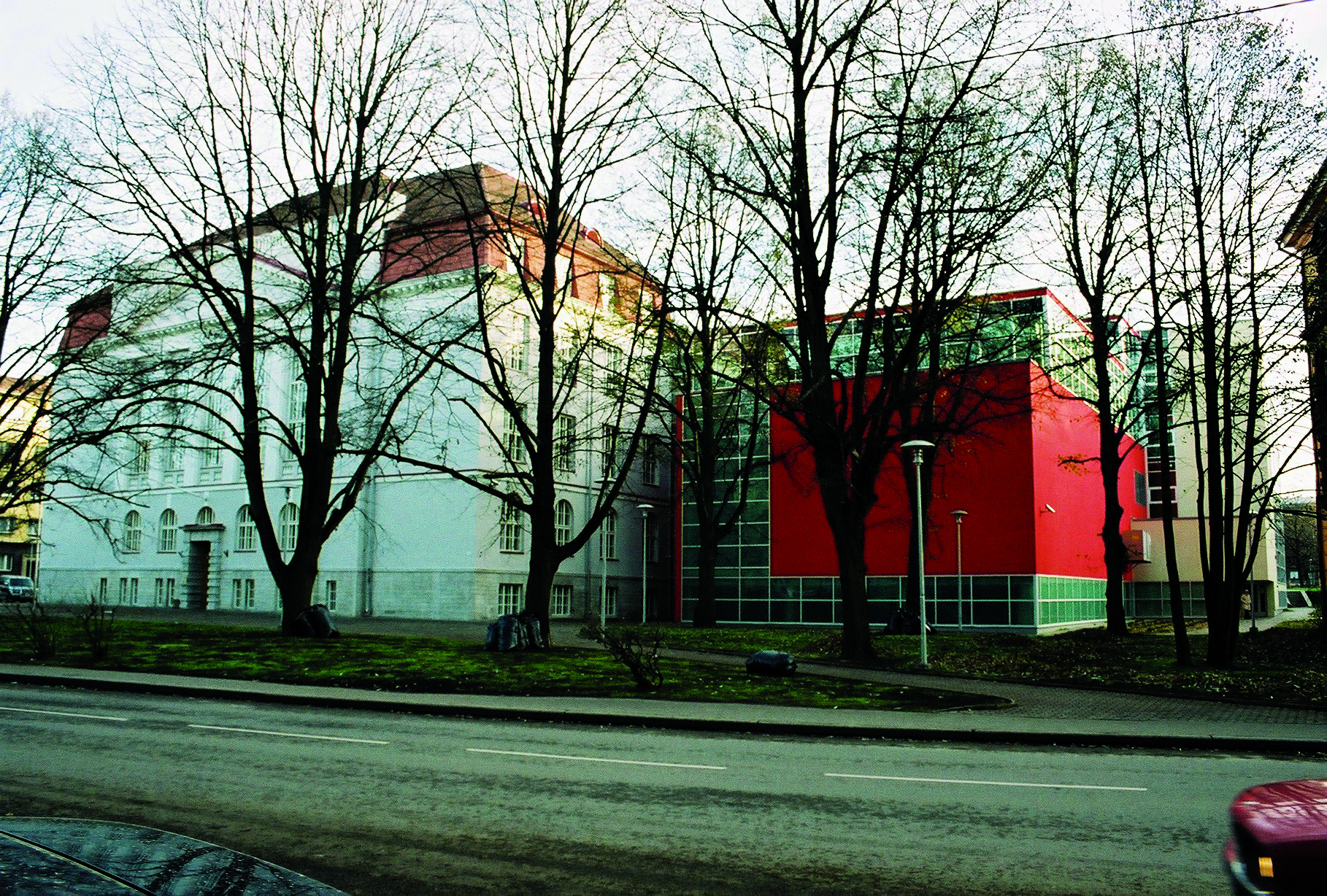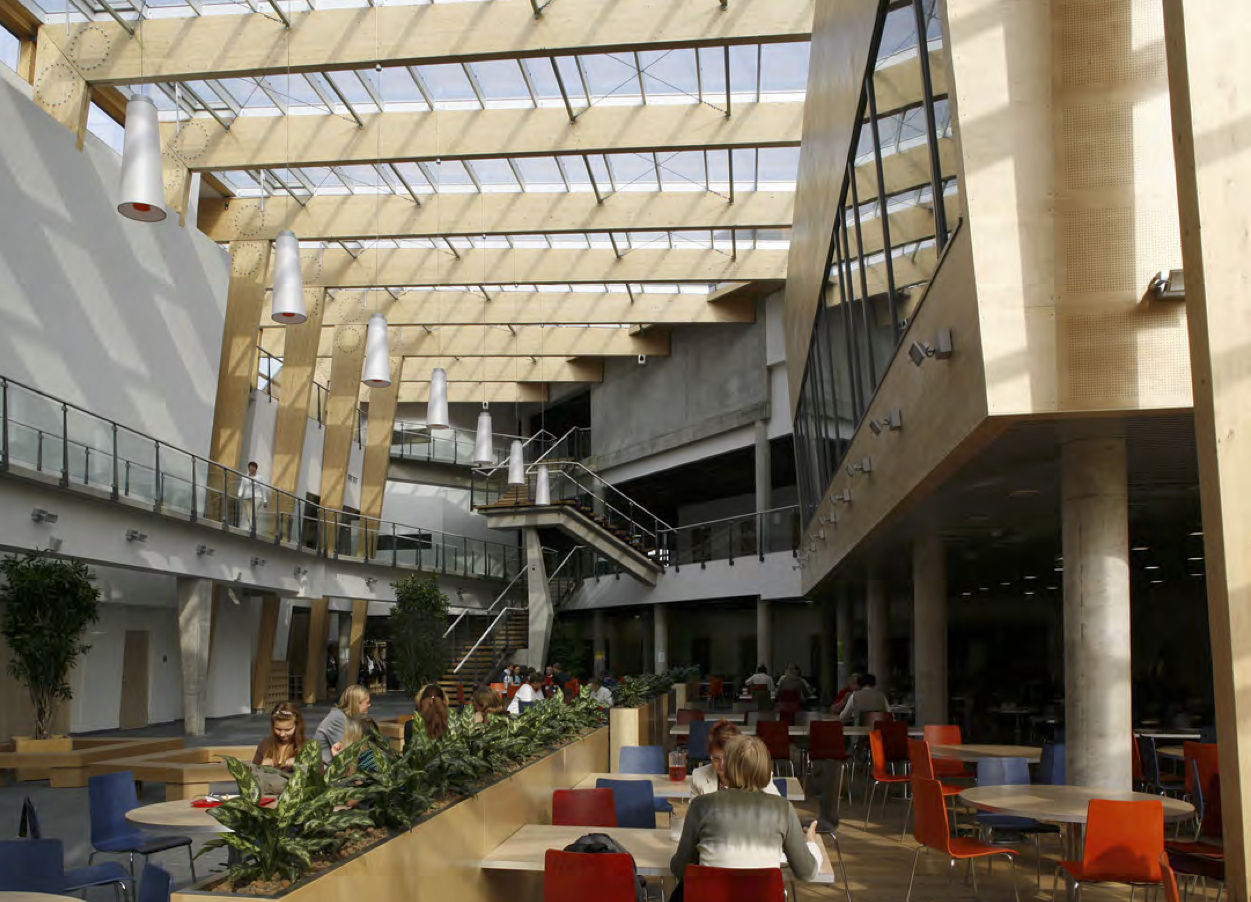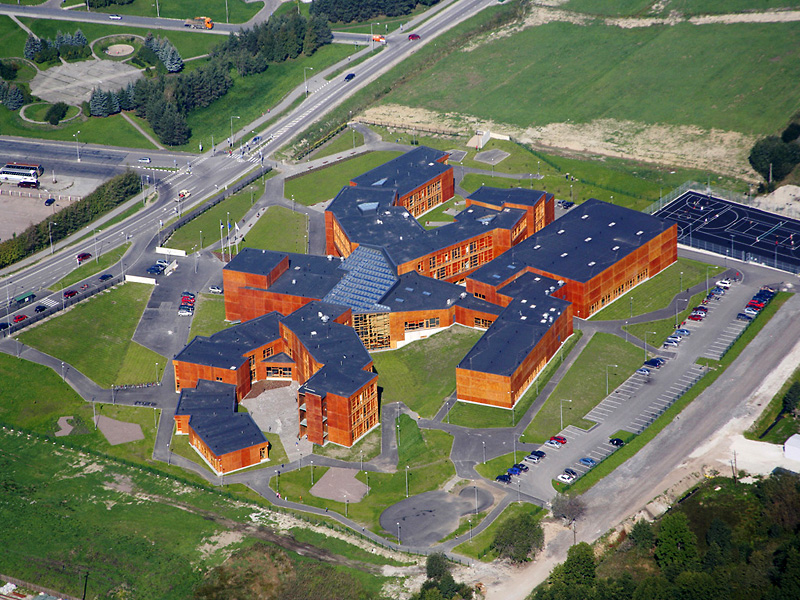Raul Jarg, photo (c): Raul Jarg's archive
Architect Raul Järg is the Head of the Estonian Centre of Architecture in Tallinn. He has graduated from the Estonian Academy of Arts in programs Architecture and urban planning (2001), worked as a intern architect in Toronto at Parkin Architects (2005-2007). Later on as the Chief Architect of Rakvere (2008 - 2012) and as the architect in several architectural firms. He is is working full time in Estonian Centre of Architecture, well more than full time he says – there are several challenges in his life and as we speak about life-work balance in the life of architect he considers children one of them.
Interview by Milota Sidorova
How is it to be architect and father?
Having kids is easy. Taking care of them is the real work. But it is the question of priorities and family was always priority for me. Even during periods when I couldn’t stay so much with them, I always took responsibility for my family and we shared the work with my wife. Currently she stays at home and it is my responsibility to take kids to and from schools. One positive result of being a father is that I have be very active and work effectively. I know I have to finish the latest at 6:00pm, because that is the time when they close kindergarten. I have to work tight and can’t spend too much time on unnecessary things.
Was it different prior having kids?
I was one of those non-stop working architects before. After becoming father my patterns didn’t change immediately. During the first year of my first child I carried on the old workload. It changed smoothly. I knew my family and wife needed my support and I knew it was also nice to spend time with them. Having three kids I can say it is easy to have one, the second child is more difficult. The third kid is I believe a decision of the mother, not the father. She needs to say whether family can take the load.
You actually stayed at home one year with your third child. Did you work during this time?
I was on paternity leave. In the beginning I dedicated my time to the child. The second half of the year I began to work gradually.
Did caring for the child change something in your attitudes?
For me it was totally ok, but I noticed some of my colleagues looked at me a bit surprised. Well, I was a bit surprised. I didn’t see anything weird about being father and staying at home. Men can stay at home and share the work equally.
What happened after one year?
To be honest? I wasn’t refreshed (laughs). I was happy to go to work. My wife also told me it was good for me I went back. She stayed with the child then.
How is Estonian paternity leave system?
Every parent can take leave and receive full salary for 1.5 year in our country. The maximum support the state guarantees is a four average national salary, which is quite high. Fathers can stay at home as too, from the 3th month of life of the child.
You mentioned that men take this opportunity as well.
I don’t know the statistics and I can say it is not so popular as in Scandinavia, but men are taking this chance. I know many of my friends, my schoolmates, architects actually who did this. The system is relatively new, started around 2004 so mostly men of my age take the advantage of it. The older generation didn’t get this chance.
Do you think careers of women architects are being affected by having children?
Every woman is affected. I see now my how my wife is struggling to get back to the work. It is a challenge for every woman. Employers are not taking them back with the doors wide open.
What do you think should be changed?
It is the question of attitudes. I remember when I worked in my first job and I had to hire a secretary. It was the first time when I had to hire somebody. I still remember and I feel ashamed for the situation during the selection process. One lady I interviewed stated she had children in her CV. I dared to ask how often her children were sick. I asked because I remembered how it was when I was a child, but until now I am ashamed I asked this question. I don’t even remember who the lady was not even if she was hired but this moment stayed in my mind. Many employers my think this way. I guess it is describing the general attitude.
Have you ever had the chance to influence decision when taking somebody back from paternity leave?
We have people with kids in my current job. In the previous job I didn’t have the decision-making power. In architecture you work mostly horizontally with little power. After graduation I worked in a small offices. I think when people have their own experience and they know what does it mean to have family this experience make them behave differently thus change the system.
I think it is not only the problem of families having kids, but the whole generation. Our society is aging, the birth rate in our country is declining. Our politicians seem ignorant to the fact our future depends on our children. We are getting taxed and from this money we collectively fund pensions. In 20 years we won’t reach any pensions and there is no good theory coming from the market.
It is naive to think that immigrants or people from abroad will change the curve. Mostly they are taxed back home or work illegal or have little salaries. We are heading towards crisis.
My wife has a theory how the tax system should be changed. We are growing 3 future taxpayers and we are already paying for 3 pensioners. The state should realize that. Currently there is an income tax. The more you earn, the more you are taxed. And there is a social tax doing 35 percent. But having three kids (more than sustainable index) there should also be social tax deduction. Based on the number of kids your taxes could go down, let’s say 15 percent. Can you imagine what difference it would make if we could get 15 percent for our family?
Well, let’s take an old medieval way of life that actually lasted until 20th century. The more children you had, the bigger chances of survival you had. Children meant workforce and the care in old age. It is surprising that now we are not that far from the same mechanism. Belgium has a law your wife mentioned. Singles are taxed more 22 percent, families with children pay less around 15 percent. It creates strong emotional discussions in terms of discrimination, but in a very pragmatic sense, unless the system finds some magic solution to sustain us in the future, we are dependent on our children.
Coming back to you, how does your day look alike?
The bell rings 6:30am. I struggle with the bell for the next 20 minutes (laughs). Then I prepare the breakfast we always have the morning porridge. My wife dresses up kids and we hurry up to the school. Sometimes it happens we have to eat breakfast in the car (laughs). Two daughters go to school and the youngest one goes to the kindergarten. I am the office 8:30am. First colleagues come around 9:30am so I have one quiet and the most effective working hour. Then meetings take place and most of my time I spend talking and walking. I don’t even have my own table at the office.
Why?
I try to be effective. I gave it to the other colleague. I stop working around 6:00pm then I rush to the kindergarten. Kids have their afternoon activities, playing music, so they can stay after school. But for the kindergarten I have to come at the right time, because my youngest son doesn’t like when I go too early, but doesn’t like when I am late either (laughs). I do it almost automatically, but sometimes a nightmare happens. Last Friday I went to the shopping mall with my eldest one and 7:23pm I receive the call. I look at the number and I realize I forgot my son at the kindergarten. It is exhausting.
When we come home I help kids with their homeworks. They go to sleep around 10:00pm. That is the time when I stop.
Wrapping up this topic what would you suggest to young women architect if they want to stay in architecture?
Well, they definitely have to stay in architecture, because it is such a nice profession. I am pretty sure they have look for supportive partner with whom they can share time and workload. In the beginning both men and women have to accept children will inevitably change their daily regimes. But architecture as profession is quite flexible. I know many of my colleagues who stay and work from home. Men and women. It is absolutely doable.
I have seen it.
Thank you very much!











